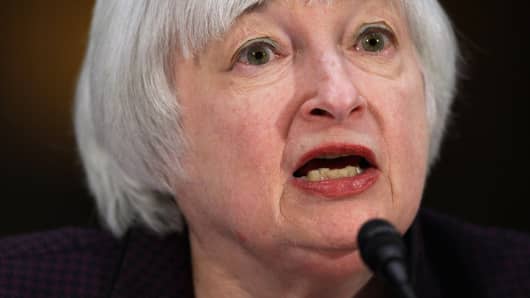Some economists had suggested that job growth, particularly in the Northeast Corridor, would be held down by the very nasty weather that gripped cities from Boston to Birmingham.
Despite the strong report, and near full employment, wage growth remained subdued, but the strong data suggests to the bond market that June is back on the table, as far as a rate hike from the Federal Reserve.
Read MoreAre you a millionaire in the making? Find out ...
10-year Treasury yields have climbed to nearly 2.2 percent in anticipation of tighter money from the Fed.
There is a growing disconnect between what has been believed to be a traditional economic relationship … that is that full, or near-full, employment leads to rising inflation as businesses compete for scarce workers by raising pay.
Another weak spot, despite the big jobs number, is the fact that the Labor Force Participation Rate, remains near 40-year lows.
(Part of that is structural, as thousands of baby boomers require every day, reducing the size of those looking for work.) The data are not nearly as noisy as some suggested and make a case for the Fed to start normalizing interest rates sooner rather than later.
However, I have argued that the Fed will not, and should not, raise rates this year, thanks to a rising dollar, weak overseas economies, soft housing and some other risk factors that could emerge with higher rates.
Read MoreFed won't raise rates at all this year: TrimTabs CEO
The other relationship that has failed economic modeling is the relationship between accelerating growth, job creation and the overall inflation rate which, as I have repeatedly stressed, has moved AWAY from the Fed's 2-percent target, not toward it.
That factor argues for Fed patience in normalizing interest-rate policy.
However, if the data remain this strong in the next two months, it will be increasingly difficult for the Fed to refrain from making its first move.
Read MoreOp-ed: Why consumer spending is due for a pop
Good news does not have to be bad news for the markets. Normalizing interest-rate policy suggests the economy can stand on its own.
For that reason, and that reason alone, I am hoping to be wrong about the Fed's interest-rate liftoff.
Having said that, the Fed should take it quite slowly and make sure that the economy, both here and abroad, can withstand even a small shock to the system, and thereafter take it one small step at a time, as it makes its moves.



